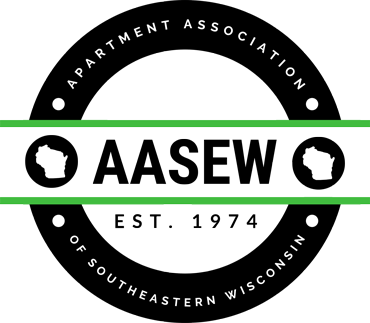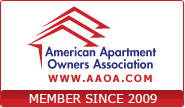Tristan is the Executive Vice President and shareholder with the law firm of Petrie+Pettit and focuses his practice in the area of landlord-tenant law representing landlords and property management companies throughout Wisconsin.
Call us: (414) 276-2850
With All of This Flood Damage Lately . . . Let's Talk About Untenantability
Posted by Tristan R. Pettit, Esq. in Abatement, Untenantability / Comments
With all of the flood damage from the July 22, 2010 storms throughout SE Wisconsin, I have been receiving lots of questions asking what will cause a rental unit to become "untenantable" and if that happens what are a landlord's duties and a tenant's rights.
"Untenantable" basically means that a property is not fit for an occupant, is not in proper repair, and/or is not liveable. A rental property can become untenantable as a result of many things. A property could become untenantable as a result of a tenant's negligence, failure by the landlord to keep up the property, or an act of God.
A tenant could be negligent and leave a candle burning which causes a fire and results in substantial smoke and fire damage leaving the property untenantable. A landlord could fail to perform the necessary upkeep to his/her rental property and over time this could result in plumbing or electrical problems thus rendering a unit untenantable. Through neither the fault of the landlord nor the tenant, a major storm could pass through causing the basement to be flooded by a combination of storm and sewer water --- sound familiar??? --- and this could result in a rental become untenantable in certain sitautions, if neglected.
Sec. 704.07, Wis. Stats., addresses the topic of untenantability. The statute states that it is a landlord's duty to:
1. Keep in a reasonable state of repair portions of the premises over which the landlord maintains control, and
2. Keep in a reasonable state of repair all equipment under the landlord's control necessary to supply services that the landlord has expressly or impliedly agreed to furnish to the tenant, such as heat, water, elevator or air conditioning, and
3. Make all necessary structural repairs, and
4. Repair or replace any plumbing, electrical wiring, machinery, or equipment furnished with the premises and which is no longer in reasonable working condition, and
5. Comply with any applicable local housing codes.
The same statute also sets forth the duties of a tenant:
1. If the premises are damaged by the negligence or improper use of the premises by the tenant, the tenant must repair the damage and restore the appearance of the premises, or a landlord may elect to undertake the repair themself and in such cases the tenant must reimburse the landlord for the reasonable cost of the repairs
A QUICK ASIDE: My personal view is that even if the tenant causes the damage, it is the landlord that should make the repairs. It is the landlord's property and I would not be comfortable allowing a tenant to make repairs to my property. I want to be the person to choose the contractor, ensure that the contractor is insured and bonded and is complying with the new EPA lead renovation rules, and decide what materials the contractor uses. If a landlord passes that responsibility onto a tenant, there are a million things that could go wrong. The tenant could elect to perform the repairs himself/herself and not have a clue what they are doing which could result in more damage, additional costs, and possible injury. The tenant could opt to hiring the contractor who quotes the cheapest price and who uses inferior products that won't last. The tenant could hire a contractor that is not bonded and insured who could then injur himself/herself and then attempt to sue me, the landlord. I could go on and on with the potential pitfalls in allowing a tenant to make repairs to your rental property, but I won't. Suffice it to say that it is your rental property, and it is your investment and as such you should be in control of it and make the key decisions.
As you can see, both the landlord and the tenant may have duties when it comes to making sure that a rental property remains tenantable. But if you follow my advice, and do not allow your tenant to make any repairs (even if s/he caused the damage), then the onus to keep a unit tenantable primarily falls on the landlord.
Sec. 704.07 also addresses the sitaution where a landlord fails to make the necessary repairs and return the unit to a liveable condition. Sec. 704.07(4), states that if the premises become untenantable because of damage by fire, water, or other casualty or because of any condition hazardous to health, or if there is substantial violation that affects the health or safety of the tenant, then:
1. The tenant has the right to vacate the premises, unless the landlord proceeds to promptly repair or rebuild or eliminate the health hazard,
or
2. The tenant may vacate the premises if the nature and time of the repair, rebuilding, or elimination of the hazard, would impose an undue hardship on the tenant, if s/he stayed in the unit.
If the tenant justifiably moves out of the unit for one of the above reasons then the tenant will not be held responsible for rent after the point when the premises become untenatable. Additionally if a unit becomes untenatable, and the landlord does not make the needed repairs, the landlord must return any prepaid rent for the period of time after which the unit is untenantable.
It is very important to note however that the tenant's ability to vacate the unit and be absolved of paying rent DOES NOT APPLY if the tenant's negligence or improper use of the property caused the damage or unsafe condition.
If the unit is damaged, but it is not untenantable such that a tenant can remain in the unit, sec. 704,07 allows a tenant to abate the rent (i.e withhold a portion of the rent) to the extent that the tenant is deprived of the full normal use of the premises. A tenant cannot abate rent 100% and remain living in the unit. If the unit is in such bad shape that a tenant feels no rent is owed then the unit is untenantable and the tenant should vacate. A tenant should be very careful before choosing to abate rent. If proper abatement procedures are not followed a tenant can find themselves on the wrong end of an eviction.
Whether or not a unit is untenantable is very fact-intensive. Different facts will give rise to different outcomes. Different judges and different court commissioners can come to different conclusions based on the very same facts.
Let me give you some real life examples to demonstrate just how subjective a determination of untenantability can be.
What if, as a result of the recent storms, the basement of your rental property is flooded by storm/sewer water (as occurred with my rental property this past week), does this make the unit untenantable? I don't think it does because we are only talking about the basement and not the living quarters. But if, I failed to remove the standing water, clean, and dry the basement -- thus preventing my tenant from using the washer and dryer for a length of time -- an argument could be made that my tenant should be able to abate rent to some extent. But if the same flood caused storm/sewer water to crest the first floor where my tenant lives and resulted in water damage to the hardwoord floors, my tenant's personal property, etc etc., then I believe a better argument could be made that the unit is untenantable.
What if the tenant has no hot water becasue the pilot light on the hot water heater was snuffed out during the flooding (which once again happened to my tenants this past week), does this make the unit untenantable? Probably not. But if I ignore my tenants' calls and fail to relight the pilot light on the water heater for the tenant, the tenant is being deprived of something that I was to provide under the rental agreement -- the hot water, and an argument for abatement of rent could be made.
What if a a tree that was struck by lighting crashed through the living room of my rental property and there was a gaping hole in the roof and little birds were nesting in my tenant's couch (thank God this has never happened to me) untenantable now? Yes, a reasonable argument could be made that the premises are uninhabitable now. Same goes for when there is a substantial fire resulting in smoke damage and structural concerns. What about an infestation of bed bugs?
There are no clear answers. Certain facts may tilt the scale in one direction or the other. There is no black line rule as to when a unit is tenantable and when a unit is untentable. Using some common sense and the guidance of Sec. 704.07, Wis. Stats. hopefully you will be able to evaluate any future situations that come your way. And if you haven't cleaned up the damage to your rental properties from last week's floods . . . what are you waiting for, DNS to show up?




